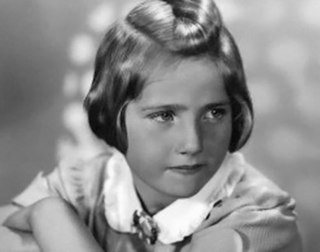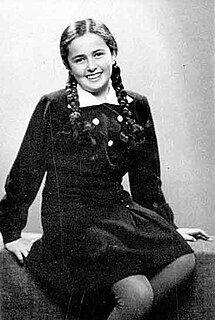
Camp Westerbork, also known as Westerbork transit camp, was a Nazi transit camp in the province of Drenthe in the Northeastern Netherlands, during World War II. It was located in the municipality of Westerbork, current-day Midden-Drenthe. Camp Westerbork was used as a staging location for sending Jews to concentration camps elsewhere.

The Romani Holocaust or the Romani genocide—also known as the Porajmos, the Pharrajimos meaning the hard times, and the Samudaripen —was the effort by Nazi Germany and its World War II allies to commit ethnic cleansing and eventually genocide against Europe's Romani people during the Holocaust era.

The Kindertransport was an organised rescue effort of children from Nazi-controlled territory that took place during the nine months prior to the outbreak of the Second World War. The United Kingdom took in nearly 10,000 predominantly Jewish children from Germany, Austria, Czechoslovakia, Poland, and the Free City of Danzig. The children were placed in British foster homes, hostels, schools, and farms. Often they were the only members of their families who survived the Holocaust. The programme was supported, publicised, and encouraged by the British government. Importantly the British government waived the visa immigration requirements that were not within the ability of the British Jewish community to fulfil. The British government put no number limit on the programme – it was the start of the Second World War that brought it to an end, at which time about 10,000 kindertransport children had been brought to the United Kingdom.

Holocaust (1978) is an American four-part television miniseries which explores the Holocaust from the perspectives of the fictional Weiss family of Jews in Germany and that of a rising member of the SS, who gradually becomes a war criminal. Holocaust highlights numerous events which occurred up to and during World War II, such as Kristallnacht, the creation of Jewish ghettos, and later, the use of gas chambers.

Petr Ginz was a Czechoslovak boy of partial Jewish background who was deported to the Theresienstadt concentration camp during the Holocaust. He was murdered at the age of sixteen when he was transferred to Auschwitz concentration camp and gassed to death upon arrival. His diary was published after his death.
There is a wide range of ways in which people have represented the Holocaust in popular culture.

Hanička "Hana" Brady was a Czechoslovak Jewish girl murdered in the gas chambers at German concentration camp at Auschwitz, located in the occupied territory of Poland, during the Holocaust. She is the subject of the 2002 non-fiction children's book Hana's Suitcase, written by Karen Levine.

George Jiri Brady was a Holocaust survivor of both Theresienstadt (Terezín) and Auschwitz, who became a businessman in Canada and was awarded the Order of Ontario in 2008.
The Devil's Arithmetic is a historical fiction time slip novel written by American author Jane Yolen and published in 1988. The book is about Hannah Stern, a Jewish girl who lives in New Rochelle, New York, and is sent back in time to experience the Holocaust. During a Passover Seder, Hannah is transported back in time to 1941 Poland, during World War II, where she is sent to a concentration camp and learns the importance of knowing about the past.

Eva Mozes Kor was a Romanian-born American survivor of the Holocaust. Along with her twin sister Miriam, Kor was subjected to human experimentation under the direction of SS Doctor Josef Mengele at the Auschwitz concentration camp in German-occupied Poland during World War II. Her parents and two older sisters were killed in the gas chambers at Birkenau; only she and Miriam survived.

Goodbye Holland is a 2004 documentary about the extermination of Dutch Jews during World War II. The film debunks the accepted notion that the Dutch were 'good' during the war, exposing how Dutch police and civil servants helped the Nazis implement massive deportations, which resulted in the death of 78 percent of the Jews in the Netherlands.

Helga Hošková-Weissová, also Helga Weiss, is a Czech artist, and a Holocaust survivor. She is known for her drawings that depict life at Terezín and her diary, which was published in 2013.

Marion Philippina Pritchard was a Dutch-American social worker and psychoanalyst, who distinguished herself as a savior of Jews in the Netherlands during the Second World War. Pritchard helped save approximately 150 Dutch Jews, most of them children, throughout the German occupation of the Netherlands. In addition to protecting these people’s lives, she was imprisoned by Nazis, worked in collaboration with the Dutch resistance, and shot dead a known Dutch informer to the Nazis to save Dutch Jewish children.
Eva and Abraham Beem were Dutch Jewish siblings and victims of the Holocaust in the Netherlands. They had been given new identities with a Christian family in an attempt to evade deportation by the Nazis, but were discovered and deported to Auschwitz concentration camp. They were murdered in the gas chamber upon their arrival on 6 March 1944.

Anne-Lise Stern was a French psychoanalyst and Holocaust survivor.

Henriëtte ("Hetty") Voûte (1918–1999) was a Dutch Resistance fighter who was declared Righteous Among the Nations by Yad Vashem on 24 March 1988 for her work rescuing Dutch Jewish children whose parents had been deported to Nazi concentration camps during World War II.
Renia Spiegel was a Jewish Polish diarist who was killed during World War II in the Holocaust.

Eva Heyman was a Jewish girl from Oradea. She began keeping a diary in 1944 during the German occupation of Hungary. Published under the name The Diary of Eva Heyman, her diary has been compared to The Diary of Anne Frank. She discusses the extreme deterioration of the circumstances the Jewish community faced in the city, offering a detailed account of the increasingly restrictive anti-Jewish laws, the psychological anguish and despair, the loss of their rights and liberties and the confiscation of property they endured. Heyman was 13 years old when she and her grandparents were murdered in the Holocaust.
Edith Eva "Edie" Eger is a psychologist practicing in the United States. Born to Hungarian Jewish parents, she is a Holocaust survivor and a specialist in the treatment of post-traumatic stress disorder. Her memoirs entitled The Choice - Embrace the Possible, published in 2017, became an international bestseller. Her second book, titled The Gift - 12 Lessons to Save Your Life was published in September 2020.














